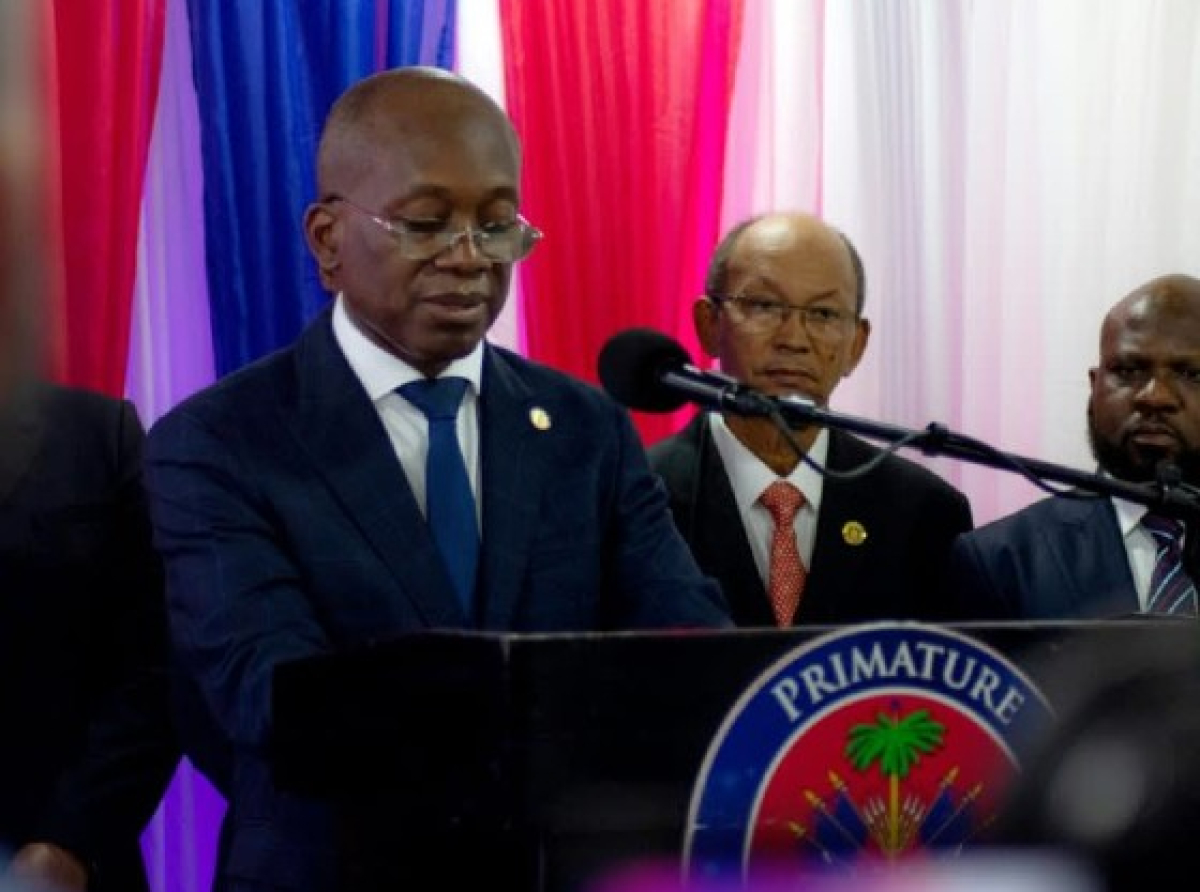Haiti’s New Transitional Government Sworn In

PORT AU PRINCE, Haiti – A new provisional government was sworn in on Thursday in Haiti, nearly two months after a criminal insurrection plunged the capital into chaos.
The nine-person “transitional council” was officially sworn in as Prime Minister Ariel Henry, who is in the United States, having been locked out of Haiti by the gang uprising, announced in a letter that he was stepping down.
“We have served the nation during difficult times,” wrote Henry, a neurosurgeon turned politician who came to power after the assassination of President Jovenel Moïse in 2021.
Thursday’s early morning ceremony was reportedly cloaked in secrecy and was not publicly announced because of the threat of violence.
On the eve of the event, reports suggested it would take place in another government property, a mansion on the outskirts of town.
Despite threats, the United States and 15-member Caribbean Community (Caricom)-backed council pressed on with its inauguration on Thursday, almost two months after the start of the criminal rebellion, on February 29.
Serving as interim Prime Minister is Michael Patrick Boisvert – Henry’s former finance minister.
The members of the Presidential Transitional Council are Smith Agustin; Louis Gérald Gilles; Fritz Alphonse Jean; Edgard Leblanc Fils; Laurent Saint-Cyr; Emmanuel Vertilair; Leslie Voltaire; Régine Abraham and Frinel Joseph all took the oath at the National Palace in small groups before going to the Villa d’Accueil for the ceremony and the speech.
The presidential advisors are scheduled to proceed to the election of the President-coordinator of the Transition Council, four names come up most often for this position Louis Gérald Gilles, Lesly Voltaire, Edgard Leblanc Fils and Fritz Alphonse Jean although no candidate has been officially announced
In recent months, Port-au-Prince has been almost isolated from the rest of the world with its international airport and port closed because of gunfights, and the roads linking it to other cities commandeered by armed groups notorious for kidnapping and extortion.
In addition, foreign governments have evacuated hundreds of citizens to the United States or the neighbouring Dominican Republic, which shares the island of Hispaniola with Haiti.


